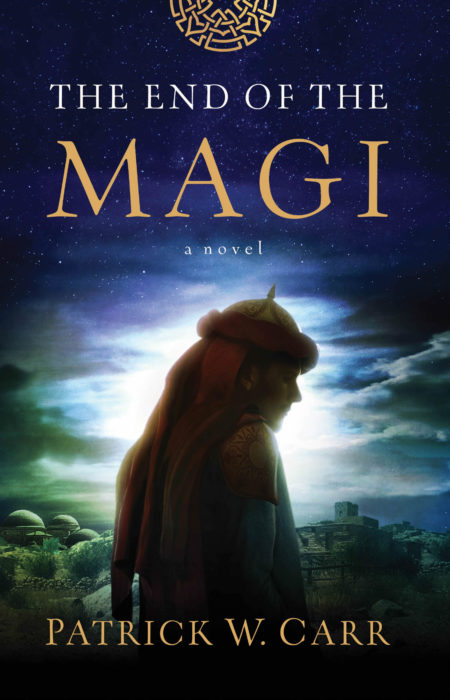
The End of the Magi
Following his vision of the coming Messiah, the prophet Daniel creates a select group of men who will count down the calendar to the arrival of Israel’s promised king. Centuries later, as the day nears, Myrad, a young magi acolyte, flees for his life when his adoptive father and others are put to death by a ruthless Parthian queen.
Having grabbed only a few possessions, Myrad escapes the city, and searching for a way to hide from the soldiers scouring the trade routes, he tries to join the caravan of the merchant Walagash. The merchant senses that Myrad is hiding secrets, but when the young man proves himself a valuable traveler, an epic journey filled with peril, close escapes, and dangerous battles begins.
With every day that passes, the calendar creeps closer to the coming Messiah. And over everything shines the dream of a star that Myrad can’t forget and the promise that the world will never be the same.
Review of Featured Review: The End of the Magi
Life should be simple if you’re a member of the biblical Magi. You come out of the box once every Christmas, and you get to wear a cool turban and ride a cool camel. You get a simple quest to seek the Christ-child with only some minor Herod-related villainy to make things interesting. Then you return home by a different route.
So it should seem, if you only read Matthew 2 and/or install a Nativity scene. But for young Myrad, who actually lives in the Parthian Empire, reality is far more brutal.
Myrad is a Gentile but the adopted son of a Jewish magus. As magi, they’re bonded to tell the truth, seek the stars, and track the calendar left by the prophet Daniel plotting the number of years until the Messiah finally arrives to establish his kingdom. They also counsel earthly kings, such as the Parthian ruler, Phraates.
Unfortunately, Phraates has been influenced by the neighborhood’s latest upstart empire, Rome. Which results in the king, enraged at certain magi’s opposition to his foolish alliance, declaring treason and slaughtering nearly every magus he can find.
Our hero Myrad ends up fatherless, homeless, and on the run. Restricted by his clubfoot, he soon joins the caravan of wise tradesman Walagash and his steadfast daughter, Roshan. They’ll face deserts, revolutions, and the friendships and threats of other magi as they work their way toward Jerusalem and that mysterious star.
Patrick W. Carr’s The End of the Magi offers only a few slow turns on this journey to Judea. That is, portions can resemble a historical travelogue. Otherwise, the entire tale is an absolute rush. Fighting magi, tense trades, ambush attacks, chases, escapes, true love, and many real pending miracles (not just the inevitable arrival in Bethlehem) make The End of the Magi a potential classic for Christmas and beyond.
Like Carr’s other heroes, Myrad feels relatable, courageously flawed, uncertain yet ambitious. His world also comes across as utterly fantastical even while grounded in research. (Carr says the novel works with real names, places, and events.)
By the end, readers will find any of their oversimplified magi mockups challenged, especially when some of these magi have different expectations of the newborn king—and, later, even different beliefs in how they ought to continue worshiping Christ. Ultimately, however, fans will emerge challenged to base all biblical fiction in Scripture and to compare all traditions with the reality of Jesus’s messianic mission.
Best for: Teen readers and older, biblical fiction fans, Christmas gift recipients.
Discern: Ruler commits magi-cide and the story shows some violent results, hero faces trauma and peril from attackers and disasters, chaste and mild romance, scenes of basically described (biblical) torture; also, some characters’ demands for a conquering-king Messiah are portrayed but clearly shown as unbiblical.




































What say you?